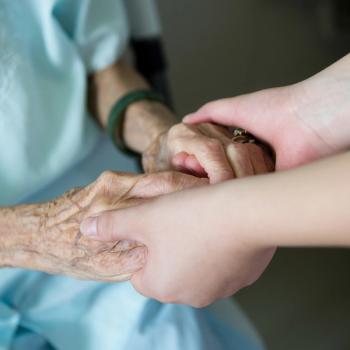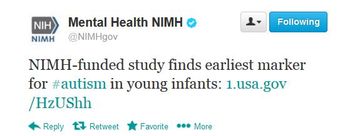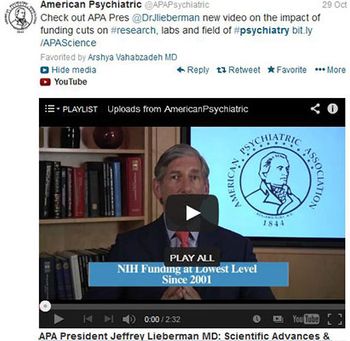
In this brief video, Psychiatric Times’ new Editoral Board member talks about what DSM-5, the medical home, and the search for money to fund novel approaches to new psychiatric treatments may mean to the practice of psychiatry.

In this brief video, Psychiatric Times’ new Editoral Board member talks about what DSM-5, the medical home, and the search for money to fund novel approaches to new psychiatric treatments may mean to the practice of psychiatry.

Various populations of patients can benefit from telepsychiatry. The goal is not to replace local mental health resources but to enhance existing capabilities. This article articulates successful interventions as well as topics to consider when developing a telepsychiatry service.

A patient’s spiritual “framework” can hold the key to therapeutic breakthroughs.

Articles on stigma, telepsychiatry, and designer drugs . . . matters germane, timely, and needed-that is what is here for you, our readers. Enjoy and learn.

At a moment when mental health is so much at the forefront of the minds of Americans and our media, it seems time, again, to try to understand the damaging views so commonly held about people with mental illness.

Noteworthy tweets in the world of mental health, week ending November 8, 2013, from NIMH, PsychCentral, Nature News, Time to Change, LA Times Health, and Neuro Skeptic.

Rorschach, inkblots. . . what do you see here?

Johnson & Johnson and its subsidiaries will pay more than $2.2 billion to resolve criminal and civil liability arising from allegations relating to the prescription drugs Risperdal, Invega and Natrecor, including promotion for uses not approved as safe and effective by FDA and payment of kickbacks to physicians and to the nation’s largest long-term care pharmacy provider.

Experts address specific concerns when treating the immigrant sector and describe supervised mental health services for uninsured, largely undocumented patients.

The depth and duration of medical training in psychiatric residency is yet to be determined, but given the increasing emphasis on integrated care, the role of psychiatrists is changing. More in this video.

The challenges of identifying patients at risk for alcohol withdrawal have been found to be mitigated by the development of a Risk Stratification Questionnaire, now being adopted by the VA regionally throughout New England. More in this video.

As the month of October comes to an end, we look at a handful of noteworthy tweets in the world of psychiatry.


Some serendipitous occurrences made me wonder (even as a rational psychiatrist) whether something spooky and supernatural had been transmitted to me by the shaman who conducted a "Mother Earth" ceremony. Here's what happened.

In this video, Dr Lloyd Sederer, Medical Director of the New York State Office of Mental Health; Adjunct Professor at Columbia University Mailman School of Public Health; and Mental Health Medical Editor for The Huffington Post discusses a topic close to his heart.

A range of psychiatrists are remembered-from pioneers in psychoanalysis to trance studies; from psychopharmacology to reality therapy; from the normality of homosexuality to the psychopathology of “brain fag” syndrome; from flowers to film; from childhood to old age; from everyday clinicians to courageous challengers of the status quo; and from student to expert.

Here, barriers to successful referral to a psychiatrist, principles of management of medically unexplained symptoms, and tips on when to refer a patient to a psychiatrist.

During the first half of the 19th century, the asylum appeared to offer an innovative way for society to humanely manage and effectively treat mental illness.

Most New Yorkers were afraid to venture outdoors after the Twin Towers toppled, so a short term, part-time locums post opened upstate, an escape from the decaying metropolis and retreat to the country. What could go wrong in such an idyllic setting?

Psychiatrists have patients who need help and we have the tools to help them. Some of these tools are technical and specific (meds; CBT); but even these work best only in the context of a rich therapeutic relationship that is based on all that makes us human.

The physician’s knowledge is almost always fragmentary and incomplete--and often, “we see through a glass, darkly.” But we must not allow these limitations to deter us from diagnosing and treating our patients to the best of our ability.

If science is defined as some kind of systematic study of observed experience applied to hypotheses or theories, and then confirmation or refutation of those hypotheses or theories, followed by new hypotheses or theories that are further tested and refined by new observations – if this is the core of any scientific inquiry, I think that no objective observer can attribute the history of DSM-III, IV, and 5 to anything that approximates this process.

There are a number of well-established niches in psychiatry, from forensics to addictions to LGBT. This author relates how she established her niche as a sports psychiatrist.

Psychiatric Times asked this psychiatrist to compile and edit a series worthy of its readers’ attention. We hope you find that this special section has achieved the literary and professional standards we set.

A dually trained family physician and psychiatrist wonders about his own relief when a patient misses his third clinic visit in a row.